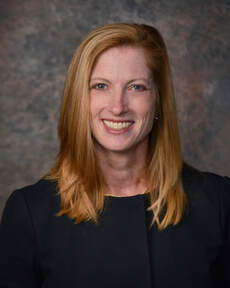 Bev Johnson Bev Johnson By Bev Johnson President/CEO of Easterseals Northeast Central Florida This April, Easterseals Northeast Central Florida welcomed 100 teams and more than 650 participants to its annual Walk With Me fundraiser at Jackie Robinson Ballpark. This year’s event was as impactful as always – bringing awareness to Easterseals' many abilities-focused programs that help young and old reach their highest potential. It also celebrated national Easterseals 100th birthday, which was April 22. It’s true: Easterseals has advocated for people with disabilities for 100 years. But what’s worrisome is how effectively Easterseals will be able to affect the next 100 years with the limits imposed by insurance companies. Our effectiveness in the next century will not be limited by expertise, need or heart; it will be limited by health equity that’s on the verge of extinction. After years of decline, Florida’s uninsured children rate increased in 2018. The issue entered the spotlight when the Georgetown University Center for Children and Families released a report not long ago that stated Florida, after years of declining numbers of uninsured kids, is seeing an increase in uninsured children. It’s a sudden, unsettling trend that all of us should care about, and we should anticipate it will continue until we collectively decide that it’s unconscionable. The report’s authors, Joan Alker and Olivia Pham, state that 12 states had rates of uninsured children that were significantly higher than the national average, and Florida’s included. Of the state’s youth (18 and under) population, 7.3 percent are without health insurance –- that’s around 200,000 children. The authors flatly declare: “The nation’s many years of progress in reducing the number of uninsured children came to a halt and reversed course in 2017.” Florida is at the top of this most unfortunate list. Easterseals Northeast Central Florida, which offers services throughout Volusia and Flagler Counties, experiences this insurance-coverage deficit daily. In addition to offering scholarships to families whose children are uninsured, Easterseals also often offers scholarships to children who are underinsured. This means that families have commercial health group insurance, but their policies do not offer specific therapy disciplines, or they may be severely limited in quantity. (For example, the health group insurance may offer 30 therapy sessions for the child, versus the recommended 3-times-per-week for 6 months recommendation by healthcare providers.) Alternatively, the deductible may be so high that families can't possibly fund services before co-pays set in. The number of children enrolled in Medicaid/CHIP and non-group coverage declined this year in Florida. Why? According to Alker and Pham, factors include national political efforts to repeal the Affordable Care act, the cap on federal Medicaid funding, and the unprecedented delay by Congress to continue CHIP funding (which allowed for its temporary lapse). Further, the study reveals, because many of Florida’s children have immigrant parents (though these children are U.S. citizens themselves), and because the current Administration has instituted policies that target immigrant communities, it’s likely these parents are deterred from enrolling their children in national healthcare programs. According to KIDS COUNT, a project of the Annie E. Casey Foundation to track the well-being of children in the United States, 1.355 million children of immigrant parents lived in Florida in 2016. The number increases yearly. Why does Easterseals care? Why should you care? Easterseals understands that when children do not receive the healthcare they need, they are less successful in school. And then, this lack of achievement follows many of them through life, affecting their ability to thrive as productive members of our communities. This long-term reality impacts our economy, our healthcare system, our workplaces and our neighborhoods…everything. Let’s be Americans who believe in achieving health equity for all Americans. When we believe this, we must support the position by our actions. We need to urge our Representatives to focus on child healthcare priorities. Call the District offices in Washington, DC (202-225-2706), DeLand (386-279-7343), Palm Coast (386-302-0471) or Port Orange (386-756-9798). Our country has the most advanced medical care available in the world. However, how well we can access this care largely depends upon our health insurance allowances. For the vulnerable of our communities – including children who are uninsured and underinsured – obtaining the health care needed to thrive isn’t a right; it’s a privilege. Easterseals is doing its part. Florida, will you do yours? 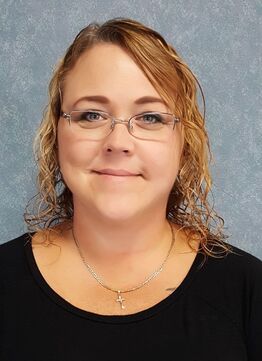 Adrienne Abercrombie Adrienne Abercrombie Blog post contributed by Adrienne Abercrombie, Deaf Advocate / Case Manager, Deaf and Hard of Hearing Services / Easterseals of Northeast Central Florida “CODA” stands for Child of Deaf Adults, which means that you are a hearing child with deaf parents. There are not a lot of people in this world that knows what a CODA is, unfortunately. When you elaborate on what it means, all of a sudden, they become so interested in your life as if you were some celebrity rock star, asking you so many questions that just does not make sense. “I didn’t know deaf people can have children…” “Can deaf people drive?” I really did not feel like a rock star. I felt more alone in this world than anything. No one truly understood what it was like to be me, a CODA. I did not talk. I did not want to use my voice to speak. I spoke with my hands and I truly believed I was your normal, average kid. I did not realize that I was different from everyone else. I thought I was deaf. Thanks to both of my parents, I had less than a handful of friends who understood exactly what it was like to be me. Thank God, they were CODAs too. I felt so close to them, more than I did with anyone else. I felt like they were my siblings. We had so much fun together and I did not have to pretend to be like everyone else. I was always me. My words were coming out all wrong. I struggled with my grammar. I knew only what I was able to hear. My mom ended up putting me in speech classes, with the schools advice, in order to learn how to pronunciate my words better. They told my parents that they were holding me back in kindergarten due to my speaking skills. My parents were so disappointed as if they had done something wrong. However, they did nothing wrong at all. It was then that they had decided that moving closer to my grandmother was the best thing to do in order for me to succeed. My grandmother was an intelligent woman and very soft spoken. It was easy to learn how to speak with her help. I had become attached to her. She understood me. She was my second mom. I will never forget this one day, my mom and I were walking through the grocery store, chatting with our hands. There were two girls, around my age, walking in the same aisle. They were following behind us with their hands over their mouths, whispering. I immediately knew they were making fun of us. I could feel it deep down in my gut. They started flapping their arms around imitating sign and giggling. This was not funny at all. In fact, this hurt my feelings. I tried to ignore them but, as they got a little bit closer, I could actually hear the words they were saying about us. All I wanted to do was shut down and cry. Deaf people do not enjoy being made fun of. Really, who does? I turned around and said, “Excuse me?” and, to my surprise, they both ran off, shocked, that I had heard everything. I felt so incredibly powerful in that moment while my mom, on the other hand, had no clue what had just happened. “Is your mom is Deaf and Dumb?” or “Is she a Deaf Mute?” I hear these two mostly used phrases all the time when it comes to explaining my life. Deaf and Dumb? Deaf Mute? Who came up with these titles? Just because you cannot hear, does not mean you are dumb or have no voice. Deaf people are just like hearing people except their ears are broken. That is all. This killed me on the inside. I was skeptical telling people that both my parents were deaf. I did not want to have to deal with all the crazy questions that came along with it. It never dawned on me that having deaf parents was actually something special. As time went on, I realized that it was actually GREAT having deaf parents! I could talk to my parents and CODA friends through windows. I could talk to them in complete privacy and no one knew what I was saying. I could even sneak out of the house, falling down outside of the bedroom window and knocking things over in the process, without being heard. (Sorry Mom!) I could even to jam out to my favorite music, singing out loud, as loud as I wanted, in whatever voice I wanted. I never got into any trouble. My dad would only tell me to be quiet when he said he could feel the vibrations, but in my mind, I was a rock star! I felt like I had no barriers. I was completely unstoppable! When I look back at my life, I realize that being different has taught me to have more compassion for those with disabilities. I understand wholeheartedly what it is like to be deaf because I thought I was deaf. Being raised in both the hearing world and the deaf world has shaped and formed me to be the proud CODA that I am today. I subtly mingle with the deaf world and they believe I am deaf because I act as if I am deaf. I am no longer afraid to answer the crazy questions that the hearing world asks nor am I afraid to educate people. I want everyone to understand that being deaf does not mean anything except their ears are broken. They do not need to be judged or looked down upon. They deserve every opportunity that a hearing person has in this world to succeed. My advice to the hearing world - go ahead and learn sign language now while you still can. It really is not a waste of your time. Whether you do it now or later, face it, your hearing will eventually fade. If you already know how to speak in sign language, you will not feel so lost when you do become deaf. Think about it, really, why wouldn’t you want to know sign? It's empowering. ABOUT THE AUTHOR: CODA Woman - Child of Deaf Adults Adrienne Abercrombie is the Deaf Advocate/Case Manager at Easterseals Northeast Central Florida which is located in Daytona Beach. She is a freelance and contracted ASL Interpreter since 1997 – 22+ years of experience as a Qualified Sign Language Interpreter, and has also worked at Sorenson Communications for 5+ years. She is always involved in the deaf community, enjoys attending deaf events and is always there to give a helping hand whenever it is needed. Her mother, Amy Barber, was the Deaf Advocate/Case Manager for 10+ years at Easterseals before she retired and Adrienne came in and took over the position to ensure the deaf community could continue to get the help that they need and deserve. Her father, John Hogg, was a Sign Language Professor at University of South Florida/Polk Community College in Lakeland, FL and her stepfather, Chuck Barber, was a Sign Language Professor at Daytona State College in Daytona Beach. Her grandmother, Pat Lozell, was strongly involved in the deaf community after retiring as a model in New York and believed in advocating for deaf rights. Pat did everything she could to help the deaf. She worked for the St. Augustine School for the Deaf and Blind which is located in St Augustine, FL. She also worked for Deaf and Hard of Hearing Services in Daytona Beach along with the FTRI department distributing specialized telephones to the deaf and hard of hearing. Deafness is hereditary on one side of her family but not on the other. She has a lot of family members (aunts, uncles and cousins) whom are deaf from birth. She also has some family members who have become deaf over time. Everyone in her family are big advocates for the deaf and they are constantly trying to ensure that they are treated fairly in every perspective of their lives. “Equality is the key to living a happy life,” Adrienne says. 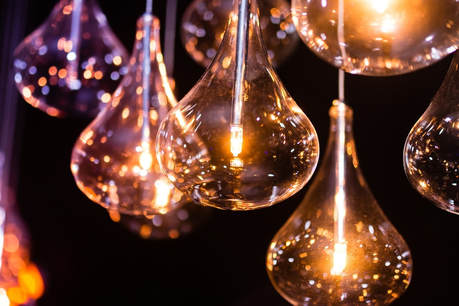 Some of the most groundbreaking inventions, including the lightbulb, were conceived by people with disabilities. Some of the most groundbreaking inventions, including the lightbulb, were conceived by people with disabilities. by Angela F. Williams, Easterseals blog writer People with disabilities of all genders, races, socioeconomic statuses, and ethnicities have a history of making the world and our communities richer, better places. What potential do we then lose when we allow barriers to prevent our fellow humans from participating? Some of the most groundbreaking inventions and innovations throughout human history have been inspired and conceived by people with disabilities. Some of these figures are household names: Thomas Edison, Temple Grandin, Albert Einstein, Leonardo Da Vinci and Stephen Hawking. But while many of the contributions of people with disabilities are in the mainstream, their names are often left out of the history textbooks and out of the conversation. I recently came across a New York Times article that told the story of the OXO brand; A husband and wife teamed up to create a product that would be comfortable for Betsy, the wife, to hold (she had arthritis). As a result, they came up with a line of kitchen products based on the philosophy of universal design. While I had seen the company’s products lining the shelves of many major department stores, the story behind it, and the fact that it was created for all hands, escaped me. According to the article, it has somehow escaped many people, too. This is just one of the many stories of inventions born of necessity for people with disabilities but ultimately adopted by people of all abilities. See also: The typewriter, text messaging, and the talking remote. Even with all these accomplishments, the movement towards an accessible and inclusive society continues. Is our notion of what it means to contribute to society even inclusive of people with disabilities? Right now, society is at a crossroads. People are paying closer attention to social issues that are important to them, looking for ways to be more involved. However, for society to continue to improve for all people living in it, we must face tough decisions about our institutions. Finding and removing the barriers within those institutions will be a challenging process. At Easterseals, one barrier that is in the forefront of our minds is health care. Threats to Medicaid are looming, and additional cuts or caps to Medicaid will severely impact the services we provide. In fact after past cuts to Medicaid, 62% of our clients surveyed (including individuals with disabilities and seniors) were unable to access services like employment and training programs due to a lack of community provider options. We grapple with this reality while still working with people with disabilities to overcome barriers, some of which are societal in nature. As a result, we support some of society’s most powerful change agents. What kind of society will they want to create? Michael, 34, an Easterseals Thrive supporter and freelance writer, said, “Traditionally, if you ask someone what they do, they’ll talk about their job. A lot of avenues are closed to me due to my mental health and to a lesser extent my physical health. My depression has significantly hindered my ability to succeed in academics which has, in turn, closed a lot of doors for me to achieve gainful employment. This further exacerbates my depression. “Individuals are capable of contributing in more ways than economically. Simply being a good friend or an emotional support for other people can be a means of adding to society. Being someone who other people can rely on when they’re having a rough time is a remarkably useful ability. I think that this form of emotional labor has been undervalued traditionally, but that it is finally starting to come around as a viable source of worth for one’s self and within a community.” 8/28/2018 Celebrating Labor Day: How Adults with Disabilities Contribute to our National ProsperityRead Now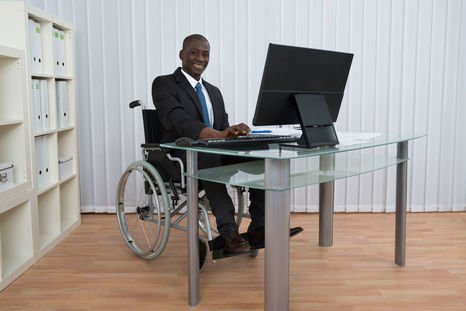 Labor Day, the first Monday in September, is dedicated to the social and economic achievements of American workers. It constitutes a yearly national tribute to the contributions workers have made to the strength and well-being of our country. Plus, it’s a great excuse for a barbeque! Though many of us think of the traditionally able-bodied worker when they think of celebrating the national holiday, we at Easterseals are mindful that an impressive portion of our American workforce is comprised of adults with disabilities who are living successful, productive lives and contributing to America’s prosperity. Still, the statistically low employment of adults with disabilities show us the untapped potential of the workforce. “Like any individual, a person with a disability has unique talents and abilities that can contribute significantly to an employer’s bottom line,” wrote Debbie Bell, writer for the Los Angeles Business Journal. “Inclusion of people with disabilities in the workforce is not only good for business but our society as a whole. When people are employed they gain self-sufficiency, including the ability to pay rent or buy a home, patronize stores, pay taxes and contribute economically to our communities and nation.” (Read the entire article here.) Bell added that a common myth surrounding employing someone with a disability is the cost related to providing ADA-compliant accommodations. However, she wrote, most accommodations cost less than $500, and research shows that those who employ people with disabilities see a $28 return on investment in these accommodations. What’s more: The turnover rate for employees with disabilities is 8 percent, as compared to 45 for other employees. The 2016 Annual Disability Statistics Compendium revealed that Florida businesses could do better in employing people with disabilities. Florida ranks 39th in the 50-state ranking, with an employment rate of 39.1. Compared with Wyoming, the leader, which boasts a 57.1 employment rate for employees with disabilities. How can we all help? One way Easterseals advocates for those with disabilities is by assisting members of Congress and their staff, White House and federal agency officials, and representatives of other national interests -- as well as citizens like you -- to understand and act in support of policies and programs that help people with disabilities to live with equality, dignity and independence. Join Easterseals today in educating and informing public officials about issues that affect individuals with disabilities. Join our Legislative Action Network at http://www.easterseals.com/necfl/get-involved/advocacy/ to get started. This Labor Day, let us celebrate all the American workers who usher in prosperity to the United States of America and recognize the incredible value individuals with disabilities bring to our thriving economy. 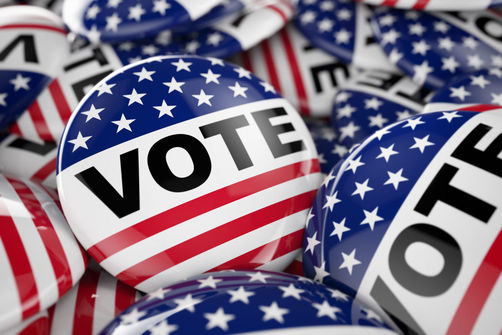 Throughout the Sunshine State, eager candidates are peppering rights-of-way with red, white and blue elections signs. They’re signs of the time as August 28 is Primary Election Day in Florida quickly approaches. Easterseals encourages members of the community to voice their support of causes and programs that help people with disabilities achieve independence and reach their potential. (Learn more on how to be an advocate for those with disabilities.) Below is a recent blog post by Beth Finke, Interactive Community Coordinator at Easterseals Headquarters, about how we can collectively work to bring issues that matter to people with disabilities into the spotlight. Where to we start? Beth knows. Read on… How Can We Bring Disability Issues to the Forefront of Elections? By Beth Finke With cyber concerns in the news these days, many polling places are considering returning to paper ballots in future elections. I get that, but here’s the thing: many people with disabilities cannot mark paper ballots without assistance. I’m one of those people. I am blind, and without being able to read a paper ballot, I rely on special voting machines equipped with earphones in order to vote privately and independently. But now, according to Michelle Bishop, a voting rights advocate for the National Disability Rights Network, the return to paper ballots in polling places could make poll workers less comfortable with operating machine-based systems. In a Stateline article, Bishop pointed out that with half of Americans voting using paper ballots now, untrained poll workers are discouraging the use of accessible voting machines at the polling places. From the article: “It’s a constant complaint from voters with disabilities nationwide,” Bishop said. In the last election, for example, a voter called her to report that a machine was placed in the corner, turned off, with a flower wreath hung on it. “The message is: You’re not wanted here,’” Bishop said. “We get reports of poll workers discouraging their use. They say, ‘I haven’t been well trained,’ ‘It’s intimidating to me,’ ‘We’ll set it to the side and get through Election Day.’’’ The article said an October study by the Government Accountability Office shows that nearly two-thirds of the 137 polling places inspected on Election Day 2016 had at least one impediment to people with disabilities. Among the infractions:
My polling place is right across the street from where I live. Others aren’t as fortunate. Many struggle to find transportation to polling places, and along with the lack of training for poll workers, limited access to registration materials and insufficient resources for election officials — well, it’s easy to understand why we can get discouraged. A survey of voters in the 2016 election by Rutgers University reported a decline in voter participation among people with disabilities. That, in turn, discourages political parties from targeting “get out the vote” efforts to people who have disabilities. “We’re segregating in the way we vote,” Bishop said in that Statesman article. “Separate is not equal. That’s a lesson this country should have already learned by now.” More than 35 million people with disabilities are eligible to vote in the U.S. That makes the potential for the disability community to bring disability issues to the forefront of elections (and to hold elected officials accountable for policies and decisions that affect people with disabilities) pretty high. But it all starts with getting more people with disabilities registered to vote. |
Details
Archives
May 2024
Categories
All
|

 RSS Feed
RSS Feed